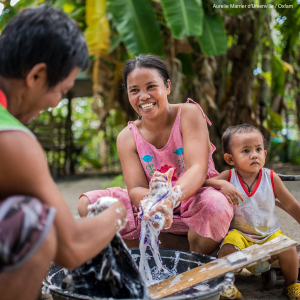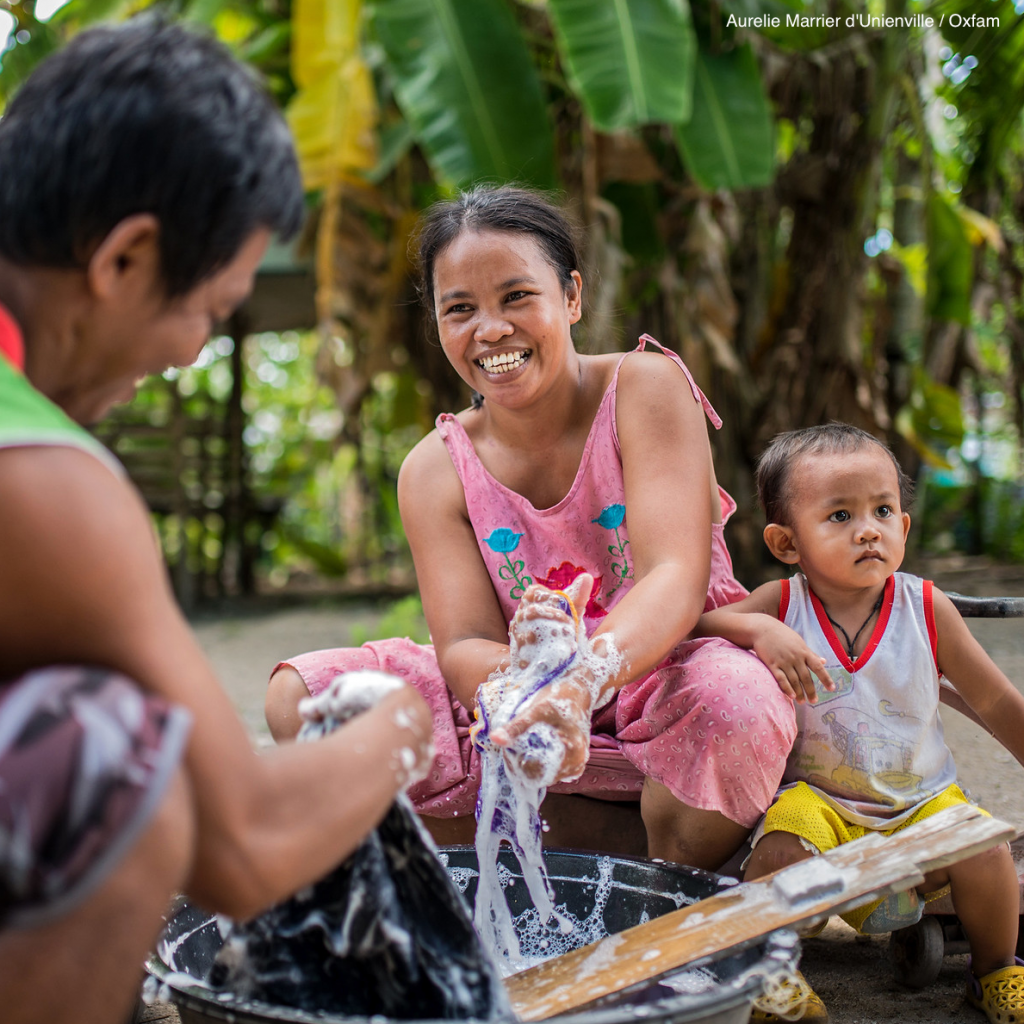To our mothers, our mother-figures, and all the women around the world who do the care work, we offer a tribute to you on this day.
The spread of COVID-19 will have a permanent impact on us, but what we will become is still unknown. Will we be more caring, or more competitive? Will women continue to do the majority of care work in the world, or will men step up to do our fair share? Will we finally have the income support and the sick and parental leave policies we need to weather this global health and economic crisis and beyond?
At its core, COVID-19 has exacerbated a crisis of care. Its impact is worse in countries with governments that have dismantled or neglected to fortify their health care systems – such as the US and Brazil. It is worse for those who depend on care support, namely the elderly in care facilities, and for those who have existing and urgent health care needs. And it is worse among minority groups who have faced years of discrimination and inequality. Its impact is faced and mitigated every day by the amazing front-line health and care professionals, the majority of whom are women. And often, underpaid.
UNESCO estimates that in the past few weeks 90 percent of the world’s children have been out of school for COVID-related closures. That means more children are at home, for more time than any time in recent history. We know from our global research that before the pandemic, the majority of childcare was done by women. Will the pandemic increase the already unequal care burden for women, and for those who are mothers? Or will men and fathers step in?
Anecdotally, several male friends have told me that the crisis, for them, has meant more quality time with their children due to school closures. One male friend told me that after all this time being at home, his young daughter said she felt she finally got to know him. I had the joy of being home with my daughter when she pressed “send” for her senior thesis, capping her 4-year university degree. We are privileged – those of us who can work from home, support our children’s education, and have stable incomes even during lockdown.
Every day it is women who carry out, on average, three times the amount of daily care of our homes, our children, and our bodies. No country in the world has achieved equality in unpaid care work. Some households achieve equality, and we know from some studies that some men are stepping in to do more during COVID-19. We need more.
On Mother’s Day we celebrate those who care for us, and those who gave birth to us. The day takes on a special meaning this year as we think of the mothers working essential jobs, the sole caregiving mothers, the mothers wondering if they will make rent, the mothers experiencing violence in their homes, the mothers denied reproductive health services as conservative policymakers use the pandemic as an excuse to restrict access to abortion care and other vital services that women need. We think of the mothers whose health and lives have been impacted by COVID-19. Mothers who are continuing their jobs from home, while keeping their children safe and cared for. Mothers who are picking up the pieces after a family member has become ill or passed away from COVID-19. Mothers caring for an elderly partner, husband, or family member who has dementia.
Our mothers and all the women who care for us deserve our recognition and appreciation. We should continue to give the flowers and cards. But in the face of a pandemic that makes clear how much we need and depend on care, it’s time to act in far bigger ways. It’s time to do our share as men. It’s time to vote for politicians who support subsidized childcare and strengthen our public health systems, and to fight for sexual and reproductive rights. It’s time for fair wages for the underpaid care workers in our homes, offices, schools, elder care facilities, hospitals, clinics, and childcare centers. It’s time for workplaces that support all of us in our caregiving responsibilities.
Equimundo’s cause is bringing men into the pursuit of gender equality – that means that men must fully do half of the care work in our homes, and that men must be part of the solution to end all forms of men’s violence and discrimination against women. We believe in and promote healthy manhood – healthy humanity – a vision based in valuing care over competition, solidarity over individualism, gender equality over the unequal status quo.
To our mothers, our mother-figures, and all the women around the world who do the care work, we offer a tribute to you on this day. We affirm our pledge to push for a world where men and boys value care, where men speak out to end men’s violence against women, and where men carry out our fair share of the daily care work. That means not just when we feel like it, not just during the COVID-19 crisis, and not just on Mother’s Day. But every day, starting today.

